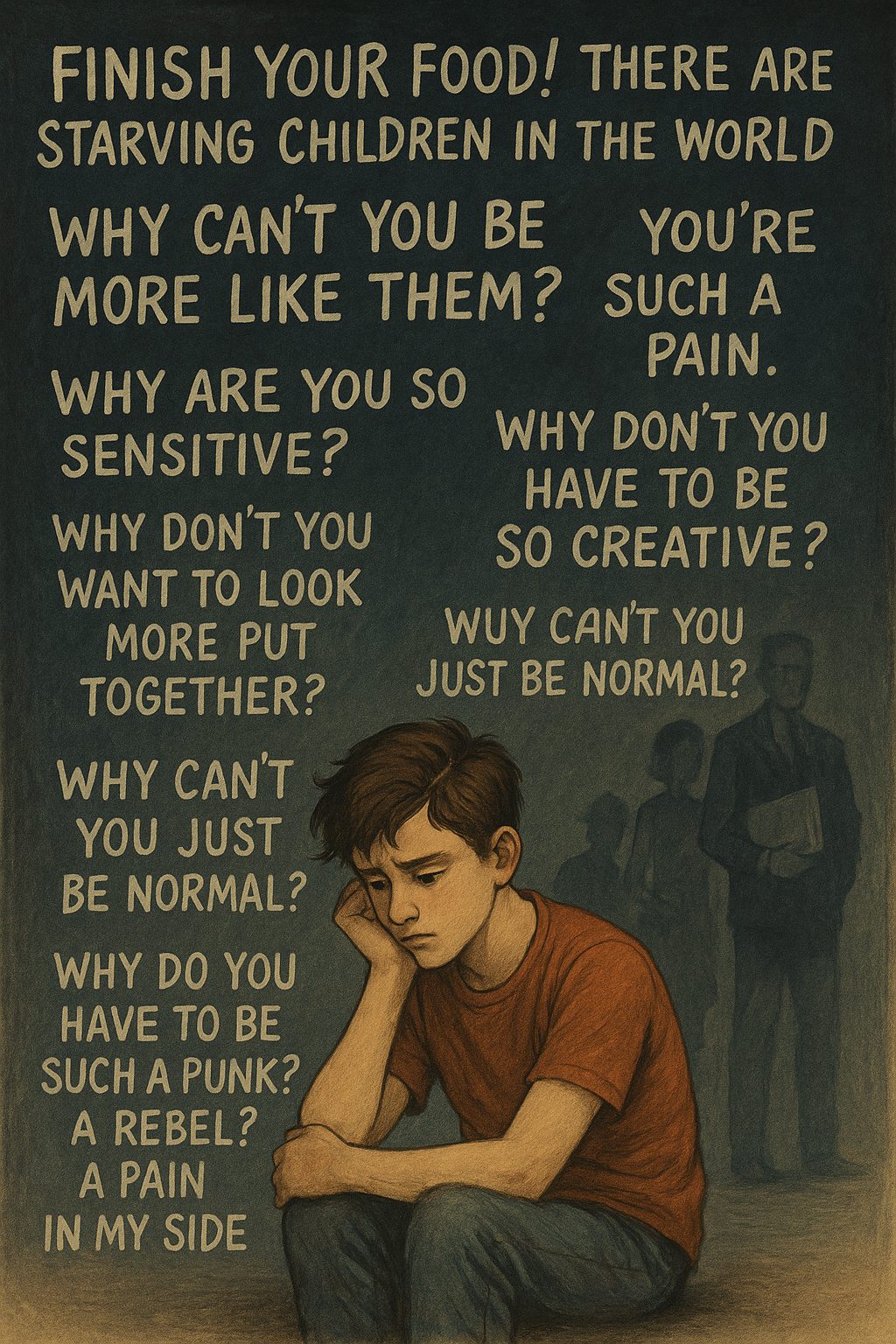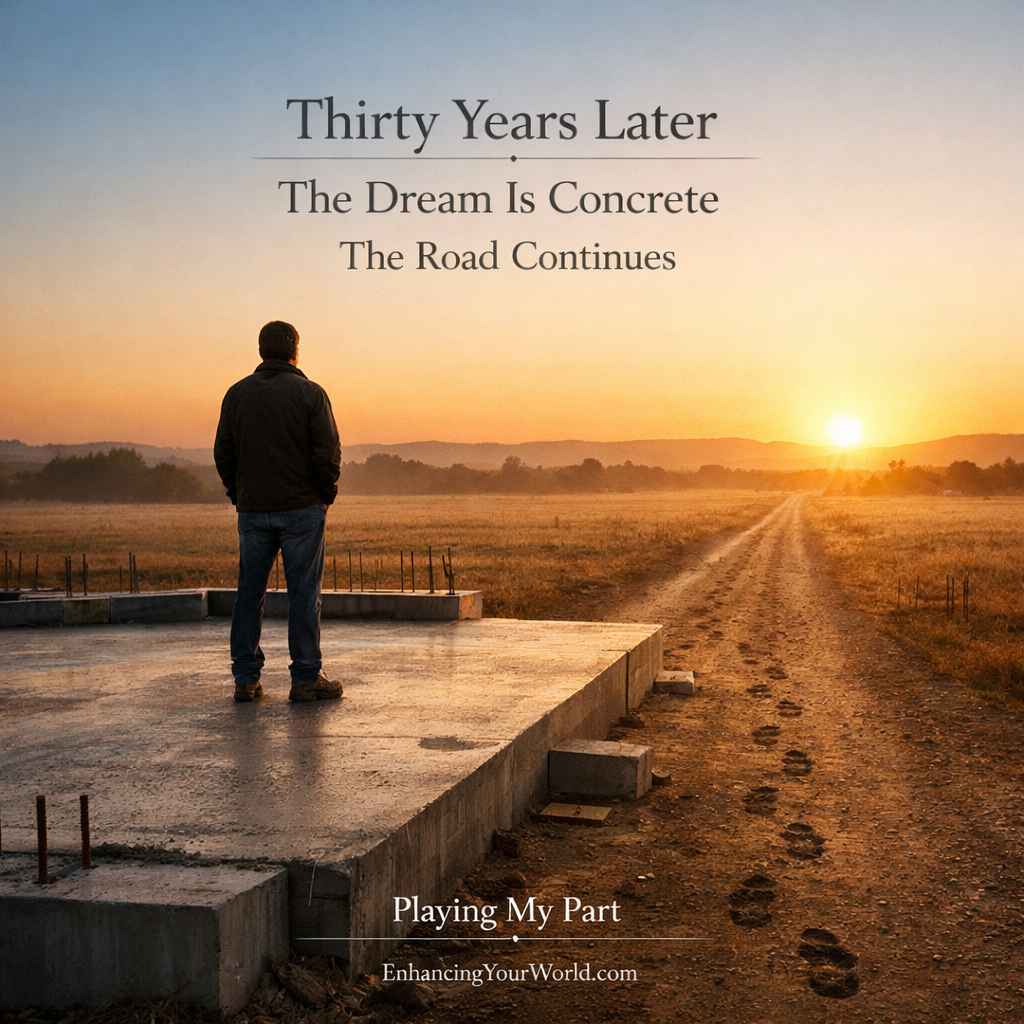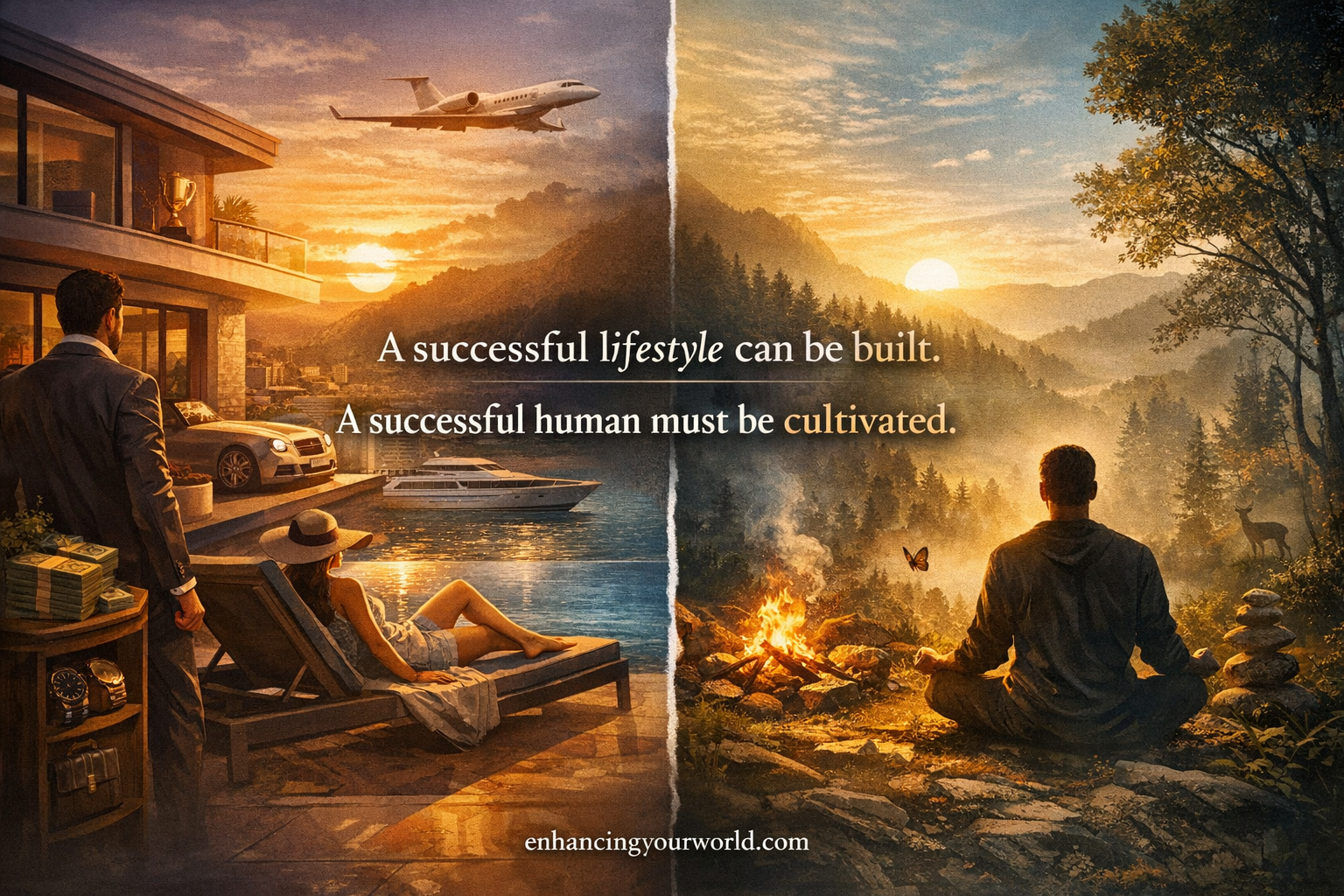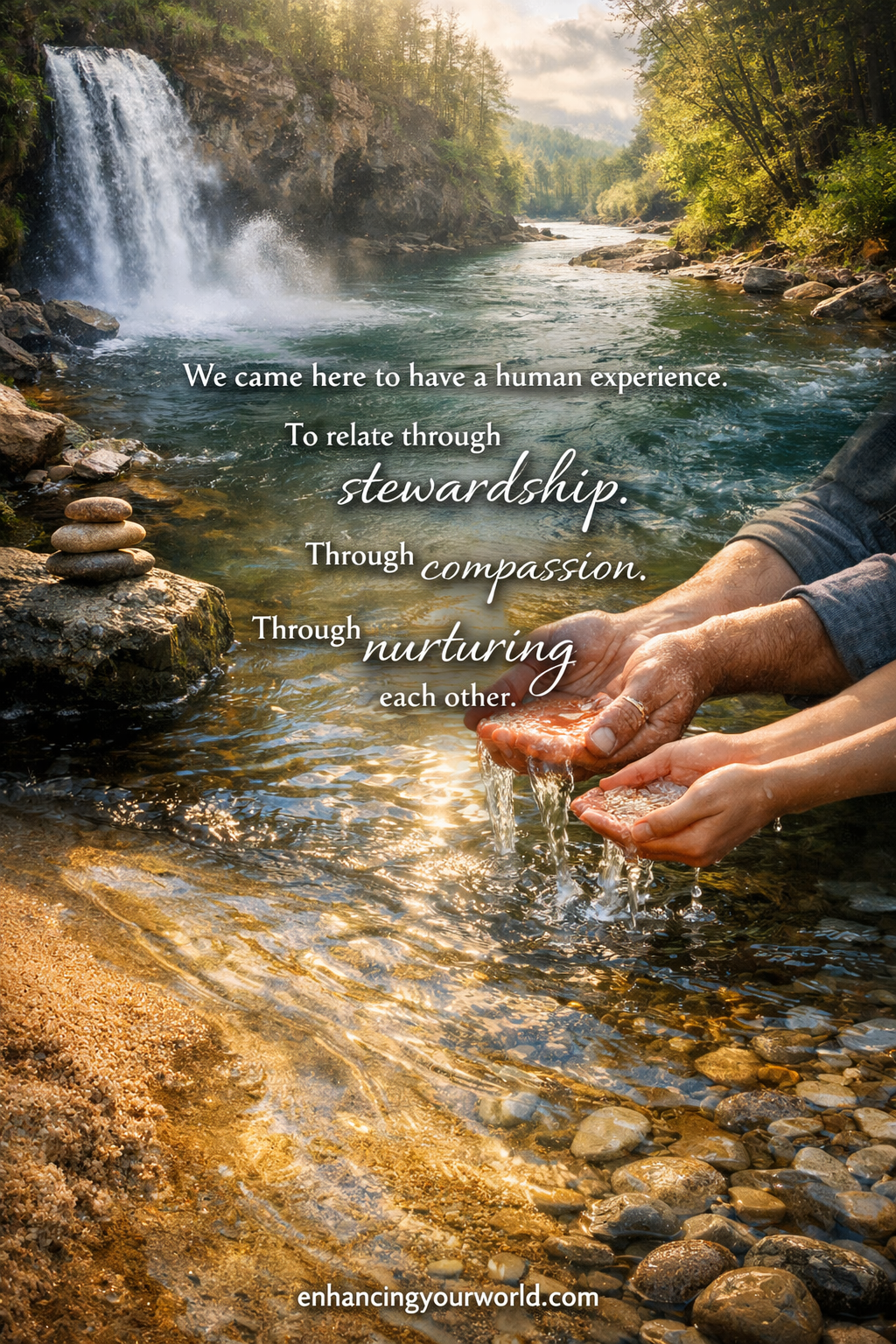The Personal Challenge of Being Visionary and Heart-Led Dreams become concrete. The road continues. And…

The Unseen Weight: Questioning Our Internal Story
The Unseen Weight: Questioning Our Internal Story
Many of us carry a burden we can’t quite name—a persistent ache to be seen, to matter, to prove our worth. We live in a world that often rewards performance over genuine presence, and from a young age, we’re subtly molded. This shaping comes not only from our families but from a collective system of conditioning: societal expectations, cultural norms, and inherited wounds. These forces subtly teach us who to be rather than inviting us to discover who we truly are.
We were pushed to strive, to win, to achieve, often not from a place of inspiration, but from a deep-seated need for survival. For many, this survival instinct began in childhood. Think of the echoes of these common phrases:
- “Finish your food. There are starving children in the world.”
- “Why can’t you be more like them?”
- “You’re such a pain.”
- “Why are you so sensitive?”
- “Why don’t you walk like everybody else?”
- “Why do you have to be so creative?”
- “Why don’t you want to look more put together?”
- “Why can’t you just be normal?”
- “Why do you have to be such a punk? A rebel? A pain in my side?”
Each of these statements, each comparison, carried more than just words; it carried shame. We weren’t simply being corrected; we were being shaped. We were molded to fit in, to suppress our true selves, and to forget the parts of us that were different—our wildness, our artistry, our raw emotions, our intuition. We learned to measure our worth against impossible standards, driving us to compete, to perfect, to perform.
Even our aspirations were pre-packaged:
- “Be a doctor.”
- “Be a lawyer.”
- “Find a good partner.”
- “Settle down.”
- “Get a job with benefits.”
Rarely were we asked the questions that truly mattered:
- “What lights you up?”
- “What do you feel called to create?”
- “What do you love just because you love it?”
Creativity was replaced with conformity. Imagination gave way to occupation. Authenticity was exchanged for approval. We weren’t truly encouraged to be; we were trained to become. To become digestible, respectable, marketable. We learned to silence our joy, our rage, our wild expressions, all to fit neatly into predefined roles—not for our soul’s evolution, but for societal acceptance.
Some of us became masters of this performance. We learned to smile when we were breaking inside, to achieve while feeling empty, to lead while profoundly disconnected from ourselves. Others retreated, numbing out or playing small, because authentic self-expression often brought painful consequences: ridicule, rejection, or the withdrawal of love. Still, we kept striving—for love, for safety, for a sense of “enoughness.”
But what if “enough” isn’t earned through achievement or comparison? What if our worth isn’t defined by how much we do or how well we conform? What if the deepest healing comes from remembering that the rebel, the artist, the misfit, the daydreamer—those parts of us—were never the problem?
They were, in fact, the truth.
The problem was a system afraid of that truth, a society that didn’t know how to love what it couldn’t control. To truly heal, we must unlearn. We must unlearn the shame that made us shrink, the guilt that made us override our own needs, and the pervasive belief that we must choose a role over our soul.
It’s time to return. Return to the sacred presence within, to the still, soft voice that has always whispered: “You are already enough.”
Let’s begin to rewrite this story. Let’s live not to compete, but to connect. Not to perform, but to exist authentically. Not to climb ladders, but to plant deep roots. Because we were never meant to be like everyone else. We were meant to remember who we are—and to create a world where that remembrance is finally, beautifully, more than enough.
Discover More at Enhancing Your World



